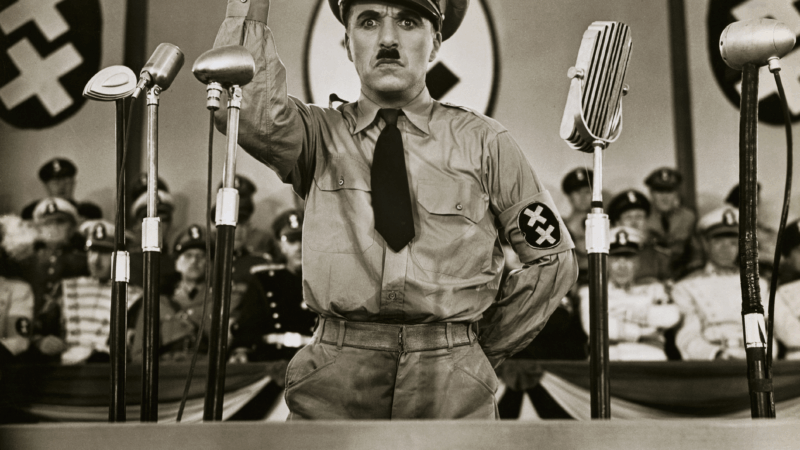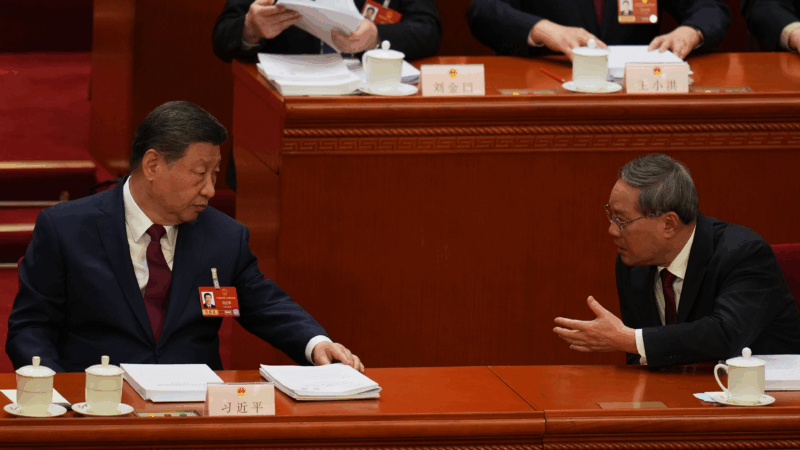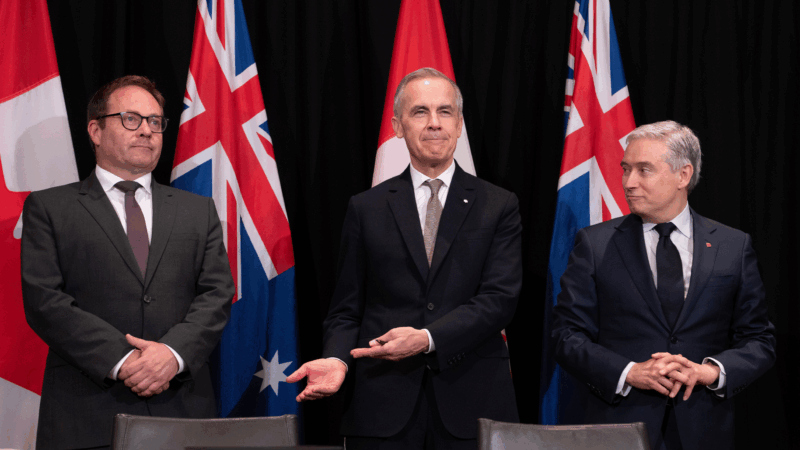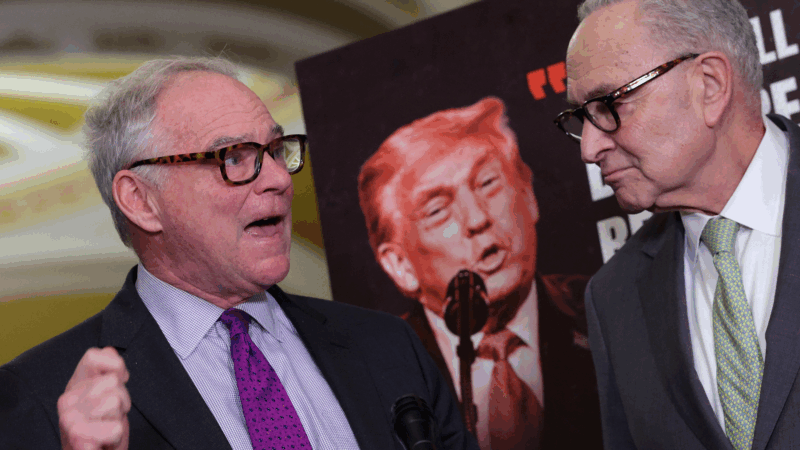How Charlie Chaplin used his uncanny resemblance to Hitler to fight fascism
Hollywood studios did not want Charlie Chaplin to make The Great Dictator. When he first started writing the script in 1938, the U.S. had not yet entered World War II. In fact, it still enjoyed friendly diplomatic relations with Nazi Germany, as well as many lucrative business ones.
So Chaplin financed The Great Dictator himself. He took advantage of his uncanny resemblance to Adolf Hitler by playing an obvious parody of the Nazi leader, named Adenoid Hynkel, in the film. But the parallels continued, as noted in the 2002 documentary, The Tramp and Dictator.
“Charlie Chaplin, the Little Tramp, and Adolf Hitler, the leader of Germany, had more in common than just a moustache,” says the narrator. “They were born in the same week of the same month of the same year. A few years before Chaplin became famous as the Tramp, Hitler was a tramp. Both were outsiders who left their homeland to conquer the world. They became the best loved and most hated men of their time.”
In The Great Dictator, Chaplin played another character as well: a likeable Jewish barber who finds himself mistaken for the odious Hynkel and who, at the end of the film, delivers an incredibly moving speech.
“I’m sorry, but I don’t want to be an emperor,” he gently informs an assembly of Hynkel’s army and advisors. “I don’t want to rule or conquer anyone. I should like to help everyone if possible. Jew, gentile, Black man, white. We all want to help one another. Human beings are like that. We want to live by each other’s happiness, not by each other’s misery.”
Never before this film had the biggest star of silent film spoken aloud on screen.
“Greed has poisoned men’s souls,” he continues, “has barricaded the world with hate, has goose-stepped us into misery and bloodshed. We have developed speed, but we have shut ourselves in.”
Later, Charlie Chaplin said he hoped that talking from his heart might even help to end the war.
“Machinery that gives abundance, has left us in want,” he says in the speech. “Our knowledge has made us cynical, our cleverness hard and unkind. We think too much and feel too little. More than machinery, we need humanity. More than cleverness, we need kindness and gentleness. Without these qualities, life will be violent and all will be lost.”
Some critics found the speech overly sentimental. Chaplin’s film also stirred the ire of right-wing politicians and power brokers in Washington including Sen. Joe McCarthy and J. Edgar Hoover, who wrongly accused him of being a Communist sympathizer. The FBI would eventually compile a 1,900 page file on him.
The film was indeed subversive, and impressively so, said science fiction legend Ray Bradbury, who was interviewed in the documentary The Tramp and Dictator before his death in 2012.
“Comedy is the greatest way to attack anything like a totalitarian regime. They can’t stand it,” Bradbury said. “At the end of the speech, [Chaplin] dares to remind you that you don’t have to go on killing. You don’t have to be a totalitarian. You can make do with the worst people in the world. Somehow you must.”
Chaplin ended his speech with an appeal to the humanity of everyone facing war. “Let us fight for the world of reason,” he implored. “A world where science and progress will lead to all men’s happiness. Soldiers, in the name of democracy, let us all unite!”
The Great Dictator was released years before the world was aware of the extent of Nazi crimes against humanity. Later, Chaplin said he never would have made a comedy about Hitler had he known. But 85 years after it debuted, his movie stands as a testament to how art can stand up to tyranny, and how hard it can fight.

China sets a lower economic growth target of 4.5% to 5% for 2026 as challenges loom
China has signaled continuity rather than change for its economy, setting a slightly lower target for growth this year in the midst of a property slump and other headwinds at home and growing uncertainty abroad.
Carney says he backs strikes on Iran ‘with some regret’ as world order frays
Canadian Prime Minister Mark Carney says he supports the strikes on Iran "with some regret" as they represent an extreme example of a rupturing world order.
Iranian civilians are now fleeing the relentless bombing for neighboring Turkey
As the U.S. military broadens its strikes in Iran, traumatized Iranians are reaching the border with Turkey.
A split Senate votes against measure to constrain Trump’s authorities in Iran
Democrats in the Senate were facing an uphill climb Wednesday in their push to restrain President Trump's ability to wage war against Iran.
WATCH: How traffic dried up in the Strait of Hormuz since the Iran war began
The effective closure of the Strait of Hormuz is "about as wrong as things could go" for global oil markets. Iran achieved it not with a naval blockade, but with cheap drones.
As Mississippi waits to spend opioid settlement funds, children and families suffer
Mississippi will receive more than $400M to fight the opioid epidemic. So far, officials haven't directed it toward programs that support addiction recovery.






